)_tankless.jpg?cx=1265&cy=0&cw=468&ch=625)
Tankless vs Tank Water Heaters: Which is Best For You?
Table of Contents
From providing the soothing flow of a hot shower to delivering the heat necessary to sterilize dishes in your dishwasher, your hot water heater is an essential appliance for everyday living.
While you have plenty of options when choosing a new hot water heater, one of the biggest decisions you need to make is whether to go with a traditional tank heater or opt for a modern, efficient tankless water heater.
Key Differences
Tankless and tank water heaters perform the same function, but there can be a big difference in cost, performance and efficiency.
How They Work
The basic difference between tank and tankless heaters is whether they include a holding tank that keeps hot water stored for use at all times. Classic tank heaters have this large storage tank, while a tankless water heater produces hot water only when needed. Both tank and tankless water heaters come in electric and gas models.
Storage Tank Water Heaters
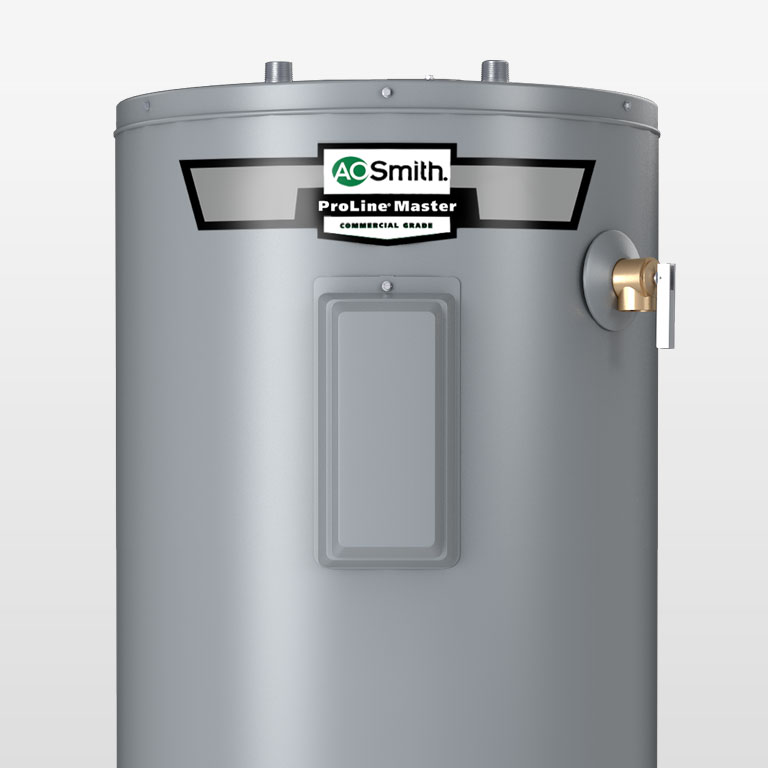
Electric Tank
An electric tank water heater hooks into your existing household electrical system. Heating elements powered by electricity may include a rod through the center of the tank or heating elements at the top and bottom, which allow for consistent heating throughout the tank. This makes electric tank heaters more efficient than gas tank heaters.
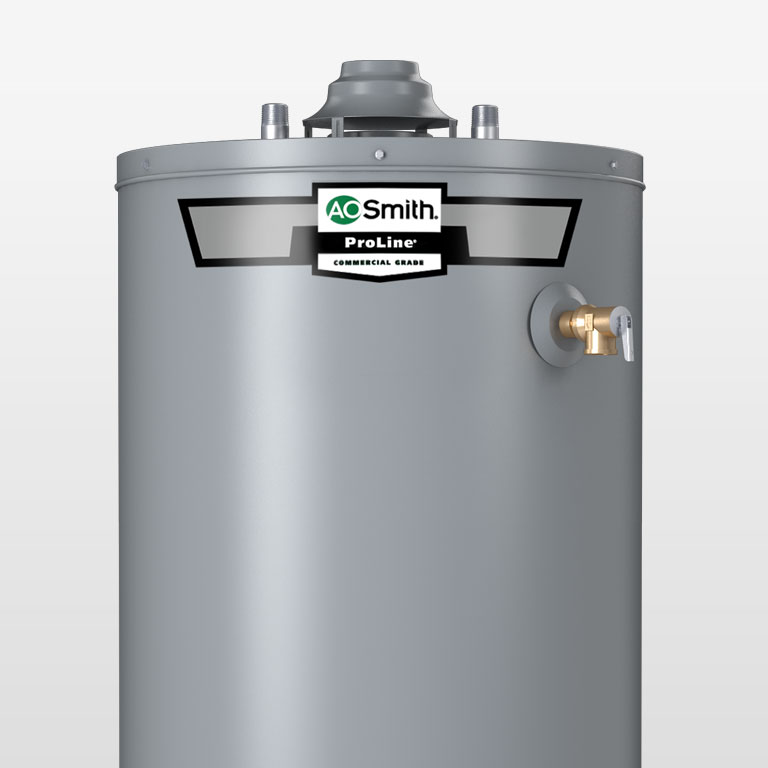
Gas Tank
A gas tank water heater uses natural gas or propane to power the heater. A gas line brings gas into the unit, where it is ignited. The burning gas heats the water in the tank, typically from the bottom upward. If the water drops below a certain temperature, the unit turns on again to reheat the water.
Tankless Water Heaters
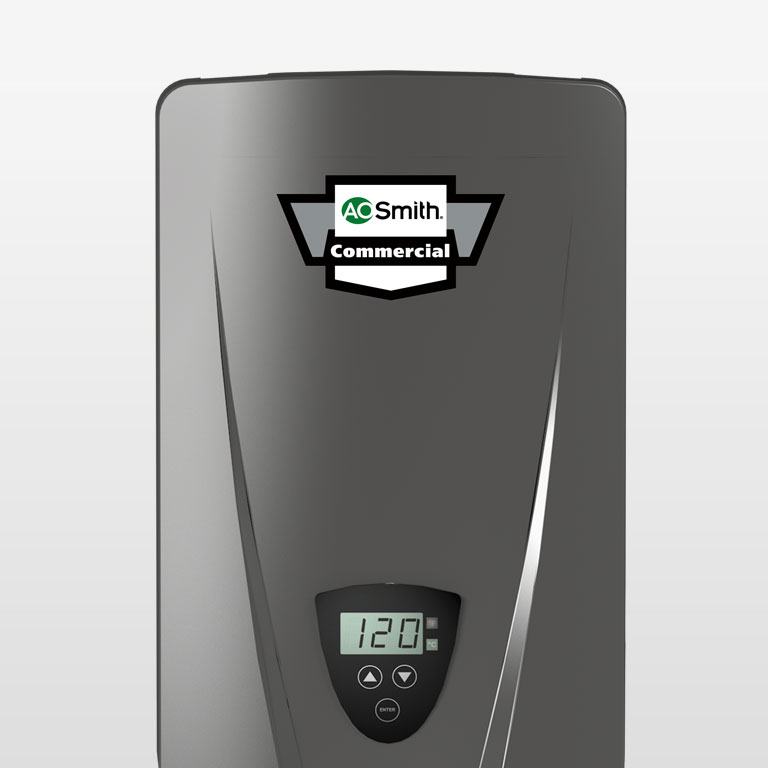
Electric Tankless
Electric tankless water heaters work with your existing electrical system and include a heating element that activates when an electrical current moves through the element. This heats the water at the point just before it moves into the pipes leading to the faucet or appliance where hot water is required.
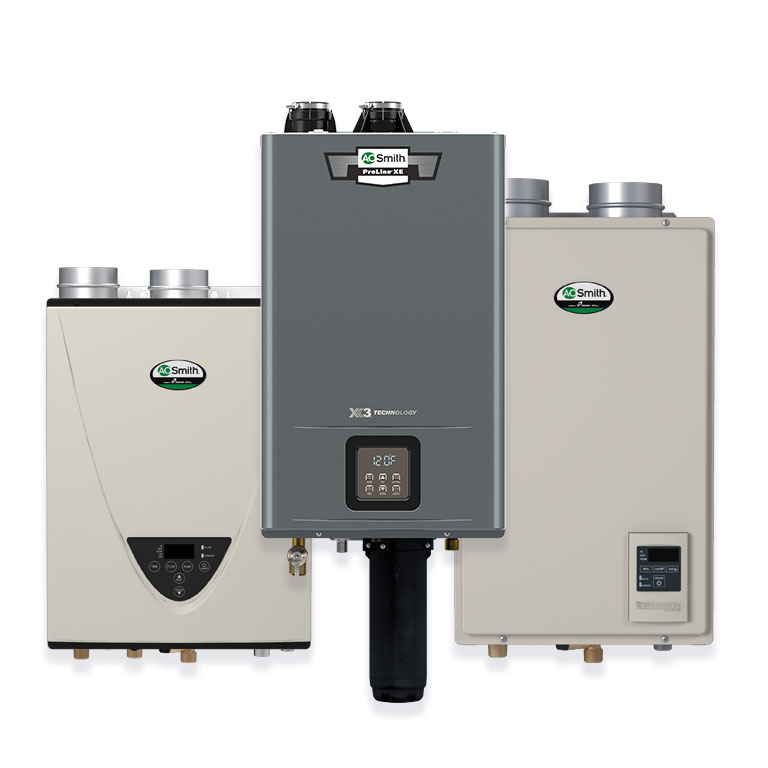
Condensing
Condensing tankless water heaters recapture some of the energy produced during the heating process by directing exhaust from the combustion process into a secondary heat exchanger. In this secondary unit, the vapors condense, producing extra energy that is directed toward heating water going through the main heat exchanger. This makes the unit more energy-efficient.
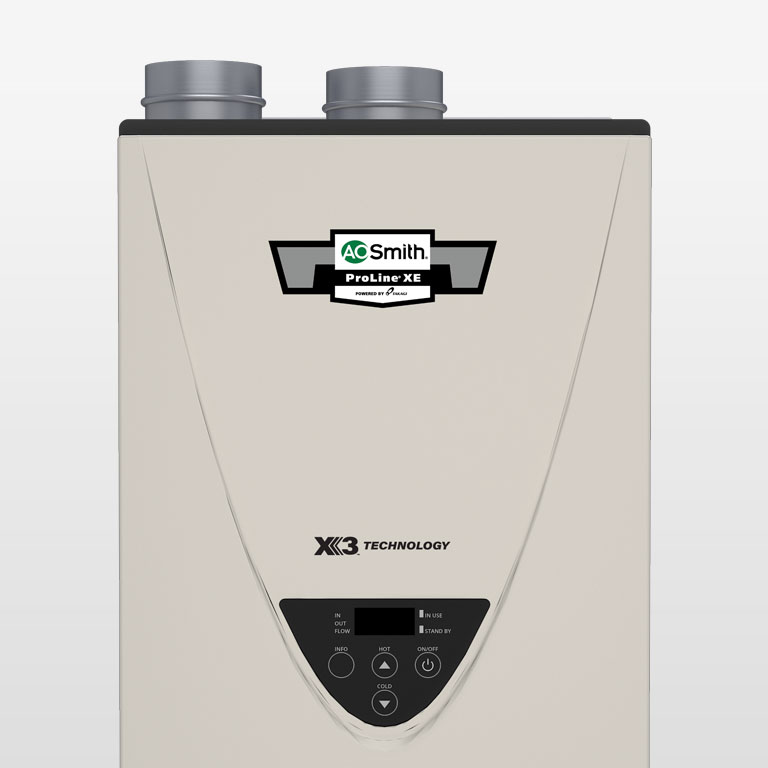
Gas Tankless
Gas tankless water heaters use liquid propane or natural gas. Activating the water heater opens a valve that lets the gas enter a small chamber, where a spark ignites it to create a flame that then heats the water before it leaves the unit.
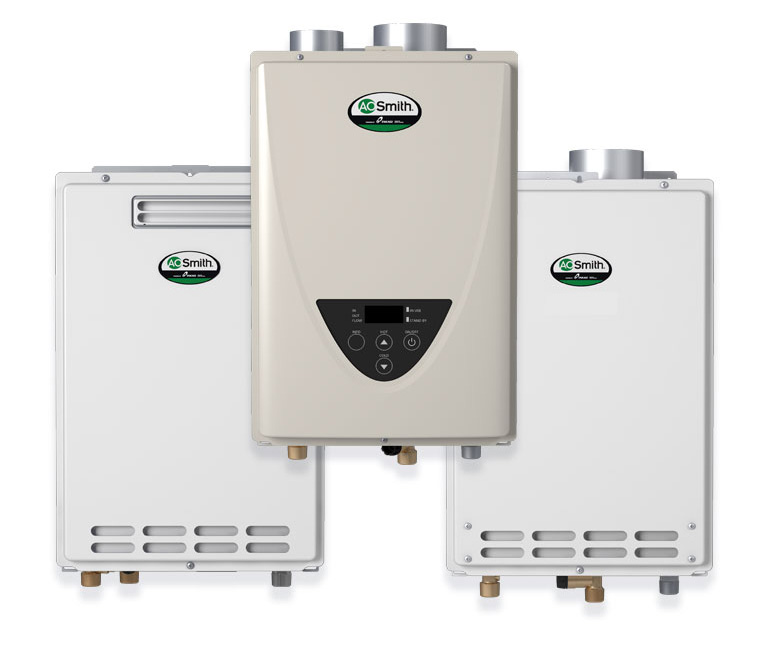
Non-Condensing
Non-condensing tankless water heaters only have one heat exchanger, so some heat energy is lost as exhaust dissipates into the air. This makes them less efficient than condensing models, and it might mean that a larger unit is needed to heat the same amount of water.
Initial Cost
The initial cost of a tankless water heater is typically higher than that of a traditional tank water heater. Rebates and tax incentives may reduce the overall cost.
Tank Cost
Tank water heaters generally cost between $300 and $2,000, depending on the model and features.
Tankless Cost
Tankless water heaters generally cost between $1,000 and $3,000, depending on the model and features
Installation
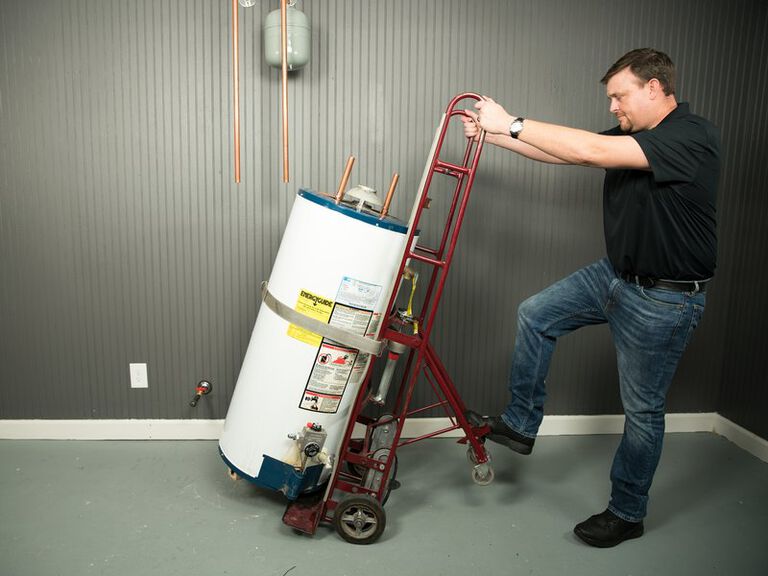
Installation costs also run higher for tankless water heaters, especially if you plan to convert from one fuel source to another. The cost of installing a gas line or switching from gas to electric operation may be a consideration when comparing electric vs. gas tankless water heaters.
The smaller size of a tankless heater simplifies installation and placement in the home. You don't need a dedicated room for a hot water tank and may be able to have your tankless heater installed outside.
Tank Installation
Installing a traditional tank hot water heater requires finding a space to put the tank. This may be a separate room or a laundry room where the washer and dryer are also located. Installation of a tank water heater typically runs from $500 to $1,000, depending on placement and the complexity of the installation.
Tankless Installation
Installing a tankless water heater requires less space than a tank heater. Installation costs can run up to $1,500 for a complex system. Depending on the size of your home, you might need to pay for the installation of multiple tankless units.
Get in touch with one of our certified professionals in your area to enquire about your particular installation needs.
Operating Costs & Efficiency
Because tankless water heaters are more efficient, they cost less money to operate. This can save you money in the long run since utility bills are lower than with a tank water heater. Many people find that the cost savings in energy usage eventually makes up for the higher initial cost of a tankless heater.
Tank Operating Cost
Tank heaters are designed to store hot water so it is ready for use when you need it. This means that the water in the tank is reheated whenever it starts to cool, and this continual reheating cycle uses energy.
Tankless Operating Cost
Tankless heaters don't store hot water at all, so they only use energy when you actually need hot water.
Performance
When it comes to the performance of a tankless water heater vs. tank versions, tankless models tend to provide more consistency and quicker distribution of hot water where you need it.
Tank Performance
Tank heaters can only provide as much hot water as is currently in the tank, so once you use the stored water, you need to wait until more is heated. This can result in cold showers or inefficient cleaning when you have multiple people using hot water within a short period of time.
Tankless Performance
Because tankless units heat water at the moment you need it, you never run out of hot water. You can run the dishwasher while you run a bath or handle a house full of guests who all need to take showers before work.
Lifespan
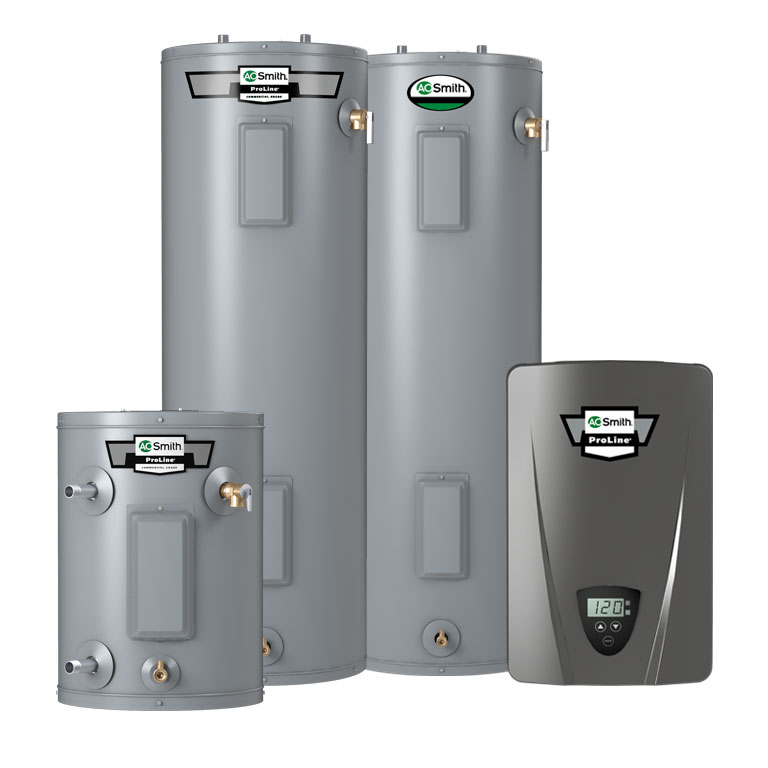
On average, tankless heaters last longer than tank heaters. This longer lifespan can save you money over time since you don't have to replace the unit as often.
Tank Lifespan
The storage tank in a traditional water heater only lasts around a decade, and gas water heaters may begin to fail as soon as 6 years after the initial installation. Typical signs a replacement is needed are visible leaks, rusty valves or failure of the heating element.
Tankless Lifespan
Because they don't use a storage tank that could be prone to leaks or rusting, tankless heaters tend to last longer than tank heaters. Tankless models can last up to 20 years. These models also experience less daily wear and tear because they don't need to constantly switch on to reheat the water throughout the day.
Reliability & Maintenance
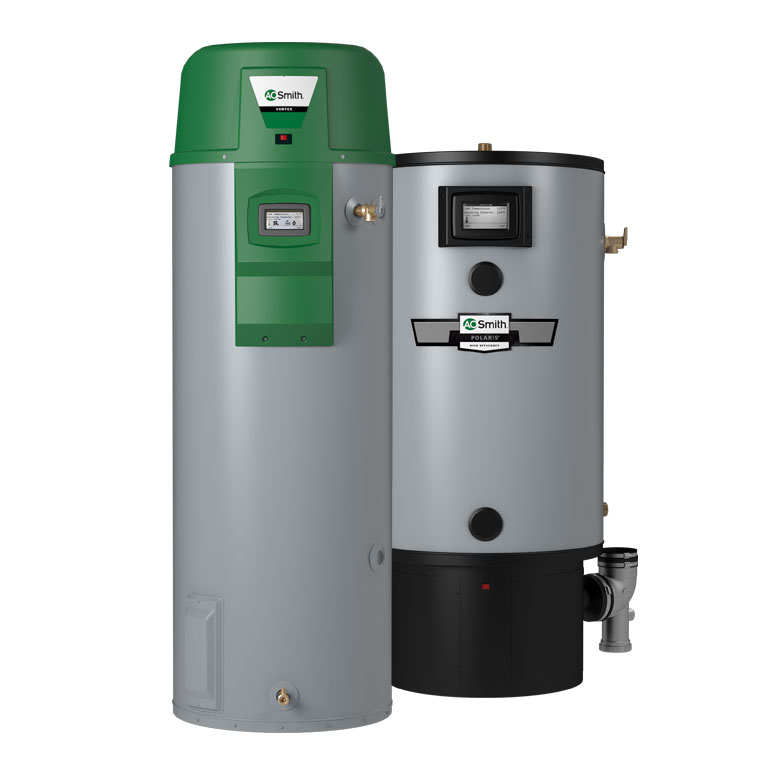
When considering a tankless. tank water heater, the tankless variety tends to be more reliable and require less maintenance.
Tank
Water heaters with a storage tank have more moving parts than tankless models, so they tend to need more frequent maintenance or repair. Sediment buildup in the tank can cause problems, so you may need to have the tank flushed periodically to remove any accumulated debris.
Tankless
The compact design of a tankless water heater helps reduce the need for maintenance. Having fewer parts also means there's less likelihood of breakage.
Gas
Gas-powered water heaters may be more prone to breakage and have a shorter overall lifespan than electric models. These heaters have components to handle gas exhaust that aren't necessary for electric heaters, which means more potential points of breakage.
Electric
Electric water heaters tend to last longer than gas heaters. This is true for both tank and tankless models.

Safety & Ease of Use
Most water heaters sold today are safe for general household use, but the simpler design of tankless heaters makes them safer than tank models. Once installed, both types of water heater operate without special care on a daily basis, though annual maintenance checks help ensure the heater continues to work as it should. Modern water heaters often have safety features that shut down the entire unit if the heating element overheats.
Tank
The storage tank of a traditional water heater can pose safety issues, particularly if it's an older model past its replacement date. Pressure can build up in the tank and cause leaking or an explosion.
Tankless
Modern tankless heaters come with features that optimize the safety of the unit, such as internal monitors that prevent overheating and keep the temperature of the heated water consistent.
Gas vs. Electric
Electric water heaters are generally considered safer than gas heaters because they do not involve a flame and do not require a connection to a gas line.
Tankless vs. Tank Models: Pros & Cons
The biggest pros and cons of a tank vs. tankless water heater involve cost and maintenance. Space for a tank and the distance between the unit and your point of water use may also be issues to consider.
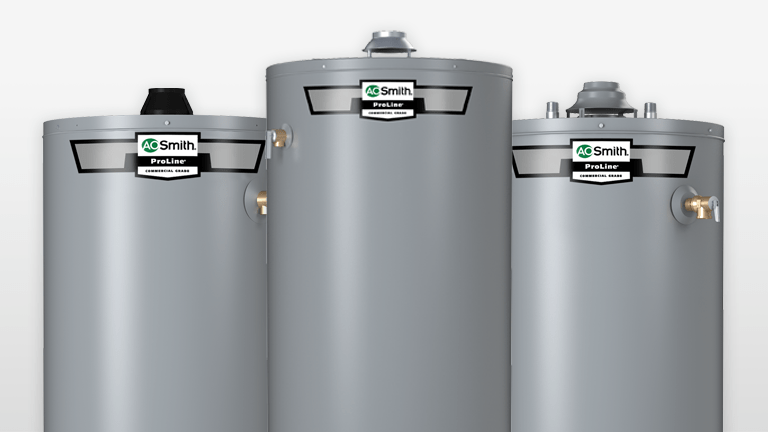
Tank Pros
- Lower initial cost
- Maintenance and repairs are simple and low-cost
- Heats a large volume of water at once so you can use multiple appliances at the same time or shower while running the washing machine
Tank Cons
- Utility bills are higher, especially in colder months, because of higher energy and water use
- Heating water can take a while, so you may have to wait to shower or clean
- Finite supply of hot water is stored in the tank, so you could run out mid-shower
- Limited product lifespan, so you need to replace a hot water tank that's too old
- Requires more space, such as a separate room or an outdoor add-on to your home, to house the storage tank
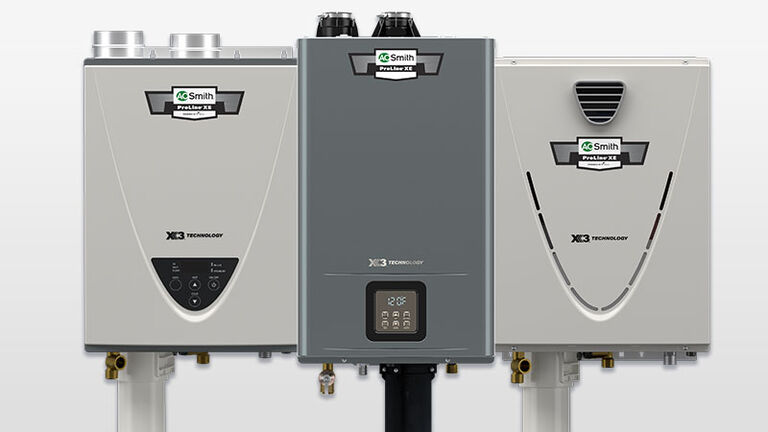
Tankless Pros
- Compact size takes up less room in your home
- Provides instant, virtually unlimited hot water when you need it
- Lower utility costs, so extra upfront cost pays for itself down the line
- Long-lasting design that doesn't require frequent replacement
- Modern technology is easy to operate
- Infrequent repairs and maintenance, and less prone to leaks than a full storage tank
- May qualify for tax breaks in some areas
Tankless Cons
- Higher initial cost to purchase the hot water heater
- High demand locations or larger homes may need more than one unit installed
- Repairs and maintenance are more expensive if and when they are needed
Frequently Asked Questions
The best choice depends on your household's specific needs and priorities. Tank water heaters work better for families who use multiple hot water appliances simultaneously and want lower upfront costs, while tankless water heaters are ideal for consistent hot water supply, energy savings, and homes with limited space. Tank models cost less initially but have higher monthly energy bills, while tankless units require a larger investment upfront but can save money through lower utility costs over their longer lifespan.
Tankless water heaters require a higher upfront investment and more complex installation, especially if you're converting from a different fuel source or need electrical upgrades. They're designed to heat water on demand, so they work best when hot water demand is staggered rather than simultaneous across multiple fixtures. Larger homes may benefit from multiple units for optimal performance, and while repairs are less frequent, they can be more specialized when maintenance is needed compared to traditional tank water heaters.
Replacing a tank with a tankless water heater can be worth it if you value unlimited hot water, lower monthly energy bills, and significant space savings in your home. The higher initial investment often pays for itself over time through reduced utility costs and the longer lifespan of tankless units, which can last up to 20 years compared to 6-10 years for traditional tanks. However, consider your household's simultaneous hot water usage patterns and potential installation requirements, as some homes may need electrical upgrades or multiple units.
You might consider a tank water heater instead if you frequently use multiple hot water appliances simultaneously, such as running the dishwasher while multiple people shower, since tank models excel at handling high simultaneous demand. Traditional tank water heaters also have simpler, less expensive repairs when maintenance is needed and require a smaller initial investment. If budget is a primary concern or your home would require multiple tankless units, a tank water heater might be more practical for your situation.

Not sure which water heater is right for you?
Take our water heater selector quiz to find the correct water heater for your home.